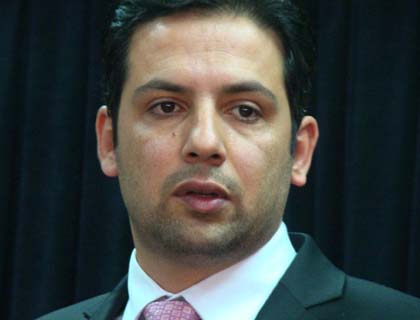KABUL - The Afghan government warned the international community on Monday not to interfere in a deepening political crisis after lawmakers appealed for help over a specially formed court that overturned results for a quarter of the seats in parliament. The deepening political uncertainty comes at a worrying time for Afghanistan, with violence at record levels and NATO-led forces preparing to hand over security to Afghans in several areas at the start of a process that will end with all foreign combat troops leaving by the end of 2014.
Karzai's court announced its new election findings only hours after U.S. President Barack Obama detailed the beginning a U.S. drawdown, with 10,000 troops to return home by the end of this year.
The ruling, and the timing of its announcement, angered several Western diplomats in Kabul and further strained ties between Karzai's government and its Western backers.
On Sunday, angry lawmakers sent a letter to U.N. Secretary-General Ban Ki-Moon asking for help from the international community to overturn the court's ruling.
But Waheed Omer, Karzai's chief spokesman, warned that the dispute was an internal issue to be resolved by Afghan institutions, and that outside interference would be regarded as a violation of Afghan law.
"The president emphasizes it is for constitutional ... institutions to resolve the issue," Omer told a news conference in Kabul. "External interference will not only not be helpful, but would be seen as a violation of sovereignty."
Afghanistan's Independent Election Commission, which ran the internationally funded poll, also rejected the court's ruling on Sunday, describing the manipulation of results as "unprofessional and non-transparent."
Watchdog Democracy International, which deployed a large team of observers during the poll, has called the court "ill-advised and illegitimate."
Karzai, re-elected after a similarly tainted presidential election in 2009, has often been accused of treating parliament as a rubber stamp. (Reuters)

